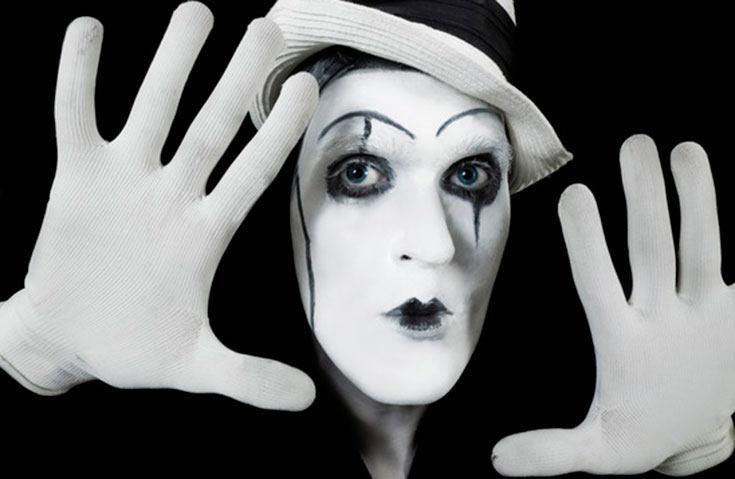
“Actors should…wear a costume, adjust the volume of their voice, achieve physical transformation into the character they portray, allocate their muscular energy efficiently, and model themselves into anything in gesture, voice or musical speech.”
Movement and, unlike our mime artist friend, voice, are important parts of an actor’s training. The body and voice are two parts of the instrument that can be harnessed effectively using tried and tested method acting techniques.
“How you move your body as an actor is one of the most important aspects of the whole job. I’ve devoted a lot of time and energy over the years to exploring all of the tools available to me, whether it’s my voice or body.”
Actor Karl Urban
Body
Does your body express your dramatic intention?
“When you free the body and it starts to work in conjunction with the mind, your whole instrument becomes extremely powerful.”
The Ultimate Guide to Method Acting
We, as actors, place far too much emphasis on what is being said, and not what the body is doing in a scene. I firmly believe that effective control and expression of the body is fundamental to outstanding acting.
“The body can tell a story without any dialogue at all.”
The mind and the body are inextricably linked, and many believe that it is the mind that leads the body. Everything that has ever happened to you, your history, all of your experiences, emotions and traumas are stored in the bones, muscles and cells of your body. This affects the way you walk, move, your posture and your gestures.
To authentically play a character, therefore, you must change your physicality by identifying your physical habits and neutralising them. In my studio, I ask my students to observe each other as they walk across a room, and comment on their physical traits.
“Tension closes the instrument down”
The Ultimate Guide to Method Acting
To find character, and accurately portray them, you must find their history. Getting in tune with the body, and freeing your instrument allows you to find that history, and authentically portray it.
Voice
“An actor’s voice should be a versatile and imaginative instrument capable of underpinning any performance”
Ellen Newman
Do you realise that you probably only use 10% of your vocal range and quality on a daily basis? To progress as an actor, you need to learn to expand your voice beyond day-to-day use.
Many aspiring actors aren’t interested in stagecraft. Most are focused entirely on the screen – big or small. But most, if not all outstanding screen actors of the day started on stage, and that is where they learnt to harness their voice. Your acting will ultimately suffer if you bypass an apprenticeship on the stage.
Having said that, voice work is not just about projection. It is about learning to express yourself through your voice.
“Can you say the word ‘love’ and fill it with the sound of love? Can you say the word ‘angry’ and fill it with rage?”
The Ultimate Guide to Method Acting
Once again, you must learn to ‘free’ your voice. Think of it like an instrument, with a variety of sounds and notes, and try to make music!
Want to know more about using your body and voice in your acting? Why not pick up one of my teaching materials?

